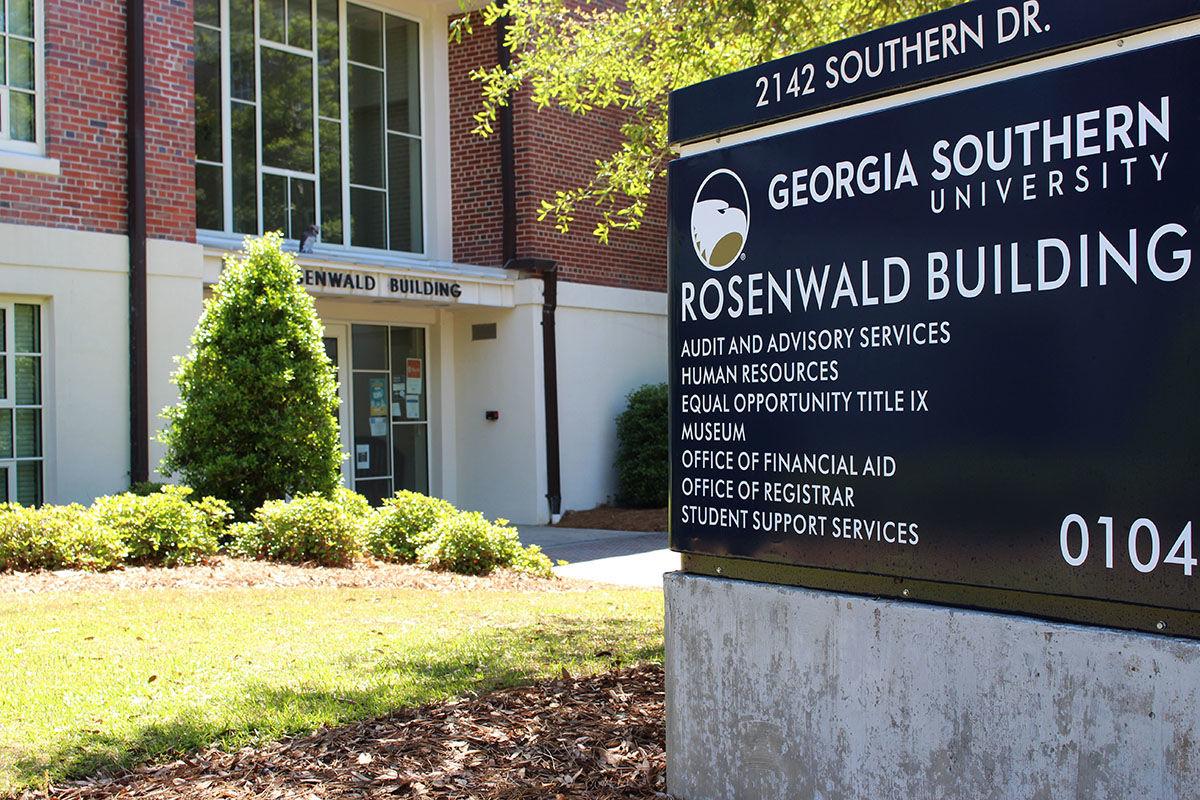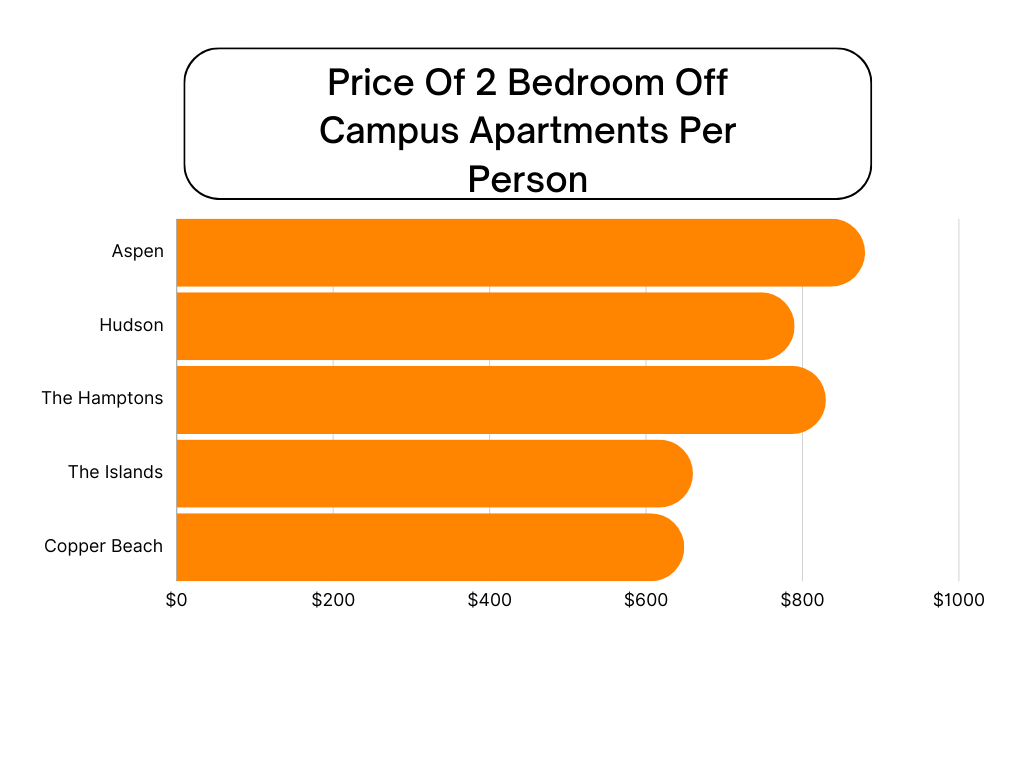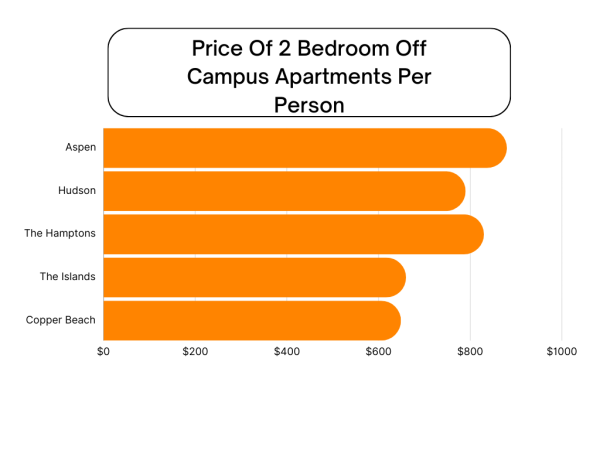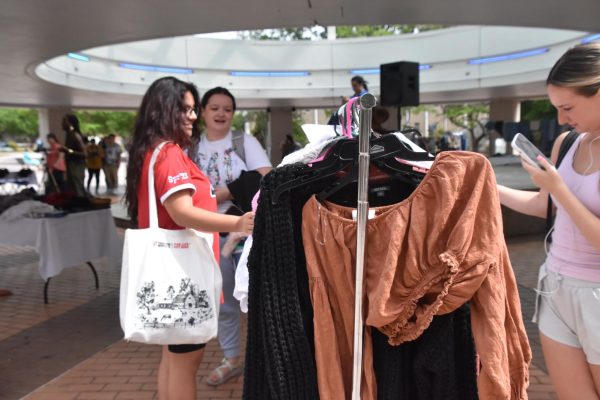Analyzing the Title IX complaint process
May 2, 2018
The Equal Opportunity and Title IX office at Georgia Southern University is in-charge of investigating any complaints of alleged violations of protected classes, among other things.
The Title IX office adheres to all the policies set at the University System of Georgia level regarding how an investigation is conducted. The first thing that the Title IX office does is review the complaint to ensure that it is something the Title IX office investigates, Joel Wright, Title IX coordinator, said.
According to the policy on the Title IX website, the president, appropriate vice president or the associate vice president of legal affairs would authorize the director of the Equal Opportunity and Title IX office to begin a fact-finding process. An investigation only begins if an Alternative Dispute Resolution, a form of mediation to resolve conflict, does not generate a satisfactory resolution or mediation is not appropriate.
After Wright and his staff investigate, a report is sent to the appropriate vice president or the president. At that point, the president or vice president can do three different things with the findings of the report, according to the policy.
Although both the president or vice president can make a determination in a case, in faculty and staff complaints, only one them makes the final institution determination, Wright said. When analyzing the reports, Jaimie Hebert, GS president looks at the decisions closely and makes his own judgement as he goes through them.
“I’m not an investigator and I would never pretend that I could look through those materials and come to a judgement,” Hebert said. “We need someone that with Joel’s expertise to do that. I feel I’m a logical enough person that I can read materials and determine whether or not those materials are supporting a judgement a professional investigator made.”
Sufficient evidence or insufficient evidence
Once the investigation is complete, a determination must be made by the Title IX office on whether the case has sufficient or insufficient evidence. Wright cites the fact that a lot of different factors can result in either terminology being used for whether enough evidence was found in a case.
According to documents provided by the Equal Opportunity and Title IX office and the university, in 2015, out of 47 cases in the spreadsheet provided, only nine cases had charges that were found responsible, one that two charges were found non-responsible, one that charges were dismissed and the other 36 have no value or information entered in that field.
The Georgia Southern Office of Legal Affairs could not guarantee that the information provided in the spreadsheet was accurate and complete because the Title IX office has been transitioning to a new records system.
The same document showed that in 2016, out of the 161 cases, 13 cases had charges that have been found as responsible, four cases had charges that have been found as not responsible and the rest of the cases had no value or information entered in that field.
According to a report provided by the university, in 2017, there were 128 Title IX cases. Of those cases, 32 involved sexual misconduct, eight involved sexual harassment and eight involved sexual assault. The rest of the cases involved conduct code violence, dating violence, disability, discrimination, domestic violence, harassment, hostile work environment, invasion of privacy, sexual orientation, stalking, invasion of privacy and racial discrimination. The university could not confirm that the report was complete and accurate.
From August 1, 2017 to April 25, 2018, there has been a total of 42 cases with the Equal Opportunity and Title IX office, according to records provided by the university. Of those 42 cases, five cases resulted in no charges, 15 were labeled as “other”, which can mean a variety of things, according to the university, and 20 cases are still open. In addition, one case reached an informal resolution and another resulted in a suspension, according to records provided by the university.
Wright said that both parties in either student cases or faculty and staff cases can appeal a determination made by the university regarding each case.
“In a student case, if it’s going through student conduct, both parties have the right to appeal at each level and they would follow that standard appellate procedure,” Wright said. “In a faculty and staff, if there is a final determination, either party can request the Board of Regents, the university system’s legal office, office of legal affairs do a review, so that is their appellate route.”
Sarah’s Story
Sarah Bielski, assistant professor of foundation studies in the department of art, will be leaving the university once the semester is over. After failing her pre-tenured review, her contract wasn’t renewed. She later filed a complaint with Title IX, in which she alleges to have been bullied and harassed by Jessica Burke, director of the foundations program and associate professor of art, and that the recommendation of the department chair, Robert Farber not to continue her contract was retaliation, according to the Title IX report. She decided to file the complaint after her third-year review.
“I’m an assistant professor and at three years, you go up to your third-year review,” Bielski said. “I didn’t pass my third-year review. Then I got one more year to teach and essentially, I was fired. I had to leave and find other employment after being bullied and discriminated against for a mental health disability.”
The Title IX investigation resulted in “insufficient evidence to support the allegation that the University policy prohibiting retaliation or discrimination based on a protected class was violated.” Bielski said she felt angry and frustrated about the findings. She thought about suing, but after speaking to an attorney and realizing how damaging the whole investigation had been, she decided not to pursue it.
Burke said she was surprise by the Title IX complaint against her. She claims that she never received any complaint or had any sort of grievance filed against her from Bielski. In addition, Burke saidthat she never received any type of formal notice of disability from the university. In addition, she didn’t receive anything from Dean Curtis Ricker or Farber and agrees with the findings of the report.
“I never received a single notification or request for any accommodations for this faculty member based on disability from the Human Resources Office, my Dean or the Chair of my department,” Burke said in an email. “Based on these things, I believe this is in line with the Title IX office finding of insufficient evidence of any policy being broken.”
Jodi Caldwell, director of the GS Counseling Center and chair of the Sexual Assault Response team, said that a victim might feel demoralized or deflated, when a case reaches an “insufficient evidence” finding. However, Caldwell stated that the fact that an investigation resulted in insufficient evidence, does not mean that Title IX doesn’t believe the victim.
“I think victims can hear [insufficient evidence or no responsibility] as being very invalidating,” Caldwell said. “It takes a lot of emotional strength for a victim to come forward in the first place and to agree to participate in a Title IX investigation. Similarly, to participating in a legal investigation.”
Changing the negative stigma
At times, the Title IX office or the fact that there is a Title IX investigation has a negative connotation.
Hebert, feels that the Title IX office gets a bad reputation, when Title IX legislation is a “very positive piece of legislation.” Hebert feels that his daughters wouldn’t have had the same opportunities in athletics, education and other aspects of life, if it wasn’t for Title IX legislation.
“It has now become associated with negative behavior and defending ourselves against negative behavior,” Hebert said. “I think that is what troubles me most about our overall interpretation of what Title IX is about. Title IX did a lot of really positive things for females in our society.”
Like Hebert, Wright, believes that there is a misconception about the Title IX office that he hopes is dying out, as they try to go out and talk more about issues that they investigate. Wright wants to make sure that people understand that the goal of the Title IX office is to investigate complaints in a neutral, unbiased and fact-based investigation.
Jozsef Papp, The George-Anne Editor-in-Chief, gaeditor@georgiasouthern.edu.
{{tncms-inline content=”<p>Georgia Southern Counseling Services (Students can confidentially report cases of sexual misconduct or interpersonal violence): 912-478-5541</p> <p>Georgia Southern Health Services (Student can confidentially report cases of sexual misconduct or interpersonal violence here): 912-478-5641</p> <p>Georgia Southern Equal Opportunity and Title IX office: 912-478-5136</p> <p>GS Dean of Students Office: 912-478-3326</p> <p>GS Public Safety: 912-478-5234</p>” id=”c72df60f-59f1-4f59-aefd-1c674c2bde36″ style-type=”info” title=”Resources” type=”relcontent”}}










